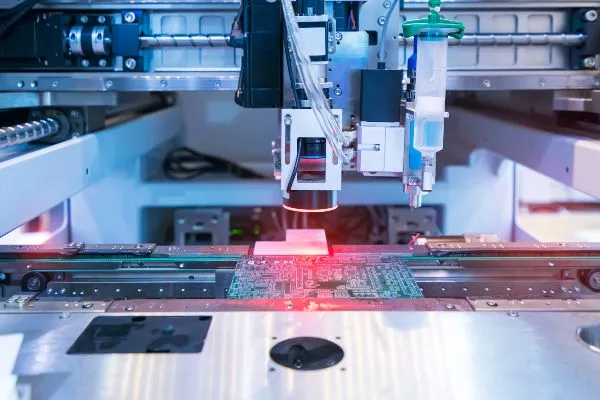India’s efforts to become a global manufacturing hub for technology hardware are gaining momentum as the government’s $2.1 billion financial incentive plan receives a strong response from major companies. Global giants like Dell Technologies Inc., HP Inc., and Apple Inc. supplier Foxconn Technology Group have applied for the scheme.
The plan, part of Prime Minister Narendra Modi’s push to boost local production of technology hardware such as laptops, personal computers, tablets, and servers, offers incentives and subsidies to companies that source locally produced components. Companies can avail a cashback of nearly 5% of the factory prices of finished products under this scheme.
As of now, around 32 companies, including domestic contract manufacturers like Optiemus Electronics Ltd. and Dixon Technologies India Ltd., have applied for the incentives. The application process closed on August 30, indicating an overwhelming industry response.
The recently launched incentive scheme aims to replicate the success achieved in 2020 when the government introduced similar incentives to jump-start local smartphone assembly. This led to increased production by global players like Foxconn, Wistron Corp, and Pegatron Corp, and even Apple manufacturing a portion of its iPhones in India.
Prime Minister Modi expects companies to make an incremental investment of 34.3 billion rupees ($294 million), with the potential to generate an additional production output worth 3.35 trillion rupees under a six-year plan. India is becoming a trusted supply chain and value chain partner due to its design capabilities, as stated by Tech Minister Ashwini Vaishnaw.
However, it’s reported that Apple is yet to apply for incentives to locally assemble its MacBook laptops and iPad tablets. While the response to the incentive plan is strong, not all applicants might win approvals, as similar programs typically work well with a few companies that can rapidly scale up production.
The government’s drive to promote IT hardware manufacturing also includes penalties for companies that fail to meet set production thresholds, with deductions of up to 10% from subsidies. Additionally, India’s plans to impose a new license requirement for tech imports from November 1, encompassing laptops, tablets, servers, and data center components, have drawn protest from US tech companies.
The success of India’s incentive plan points to its growing potential as a global technology manufacturing hub, attracting major players and establishing a stronger foothold in the tech industry.














